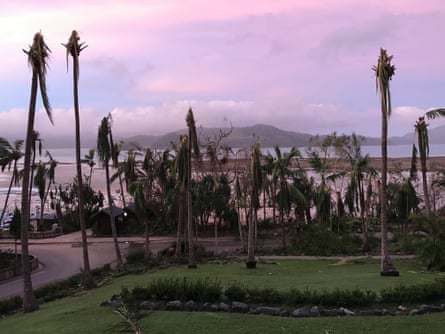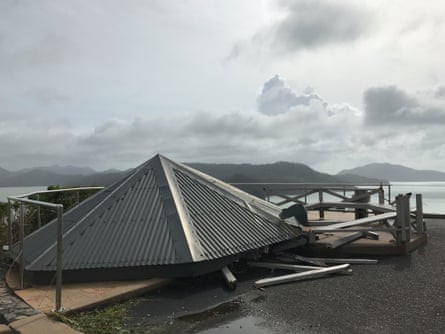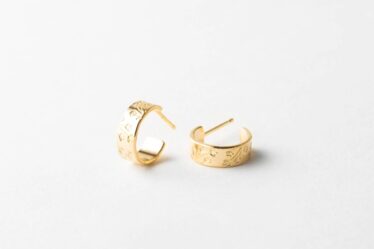
My wife is a remarkable woman: shrewd, funny, loving, delightfully tolerant of my inability to stack a dishwasher or close a cupboard door. She is also a nightmare to buy for. It’s not so much a question of what to get the woman who has everything, but what to get the woman who is completely content with a library book and a cup of tea. Birthdays and Christmas mean dread, and a wish she could be just a little less immune to the siren song of late capitalism.
But five years ago, with a milestone looming, I nailed it: a week on a tropical island, lounging on the beach with our three-year-old, fulfilling a long-held ambition to snorkel the Great Barrier Reef. Perfect present, perfect holiday.
The clue that perhaps it wasn’t was arriving to glorious sunshine, a brilliant blue sky, and an information sheet cheerily titled: “Explanation Of Situation With Regard To Potential Cyclone”.
This was alarming. But as the handout explained, the island had been built with cyclones in mind, and it might still miss us altogether. Leaving never really occurred to us; the biggest worry was our reef trip would be cancelled. We did, however, lay in some bottled water and canned food, surprised that no one else was stocking up. Clearly, we said, we were the overreacting types.
The next day, travel to and from the island was suspended. Trundling past the supermarket in our golf cart, the main form of transport on the island, we witnessed, had we known it, a preview of the great pandemic pasta panic. But still, Debbie (we knew the cyclone’s name now) wasn’t due for two days, and we went to the beach, swam in the pool and visited the koalas. Most people did the same. If the mood wasn’t relaxed, there was no panic. On the lawn outside our building a toddler played in the rain, splashing in huge warm puddles.
The afternoon before the storm hit we went to the highest point on the island to watch the darkness gather in the east. The wind was already as strong as any I’d felt. We retreated indoors, wondering what the next 24 hours would bring.
Our apartment block appeared to have been designed with a nuclear blast in mind, built from slabs of concrete and the thickest glass this side of a presidential limo, but the noise when the full force hit at midnight was still astonishing. A cyclone is loud on every frequency all at once, and it feels unpleasantly alive. In the middle of one, it’s easy to believe in nature as a malevolent force; a cyclone sounds like it means to do you harm. It was the soundtrack for the next day, as we sat nervously and watched things, sometimes quite sizeable things, fly past the window. Our son, happily, was unmoved by it all. He napped and played as if it were any other day, even when the wind started to wrench apart a window; fortunately it lost interest after a bit and the outside stayed outside.
It wasn’t until we emerged into a shattered landscape that we realised how lucky we’d been. No one died on the island, but many buildings had fared much worse than ours. One family we talked to had their front door torn off and spent 24 hours in a bathroom with three petrified children. Another apartment block had a section of roof peeled off like a sticking plaster.

We spent the next few days keeping out of the way of the clean-up crews, looking for phone reception and sadly inspecting the chunks of coral washed up on the beach – the closest we would come to the reef. Some people were in shock, others were angry, and everyone wanted to go home. And the resort management had shut down the bottle shop, which was almost certainly the right call, but it didn’t help the vibe.
Six days after arriving, we spent a tense morning at the airport, wondering if we’d get on to an evacuation flight, and if so where it might land, before making it on to a plane back to Melbourne. It hadn’t been a great holiday, but it had answered one of the eternal questions. What do you get for the woman who has everything? A cyclone.



